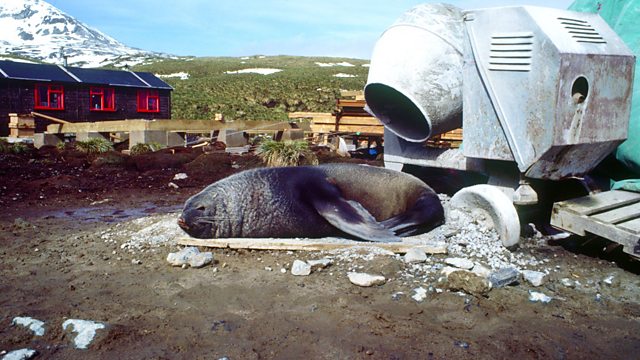Zoos in the Wild
Monty Don asks whether wildlife reserves fenced off from encroaching development can really function on their own or whether they are effectively zoos in the wild.
As more land is developed for industry and housing or converted to produce food the areas we have fenced off for nature are increasingly important. But are the worlds nature reserves essentially made into a fortress to protect the area from development able to function on their own, or do they need constant management. Are they "zoos in the wild". Monty Don hears from Hluhluwe-iMfolozi Park in South Africa, the reserve that helped replenish Southern Africa's white rhinoceros population and finds out whether size really does matter for our protected areas.
Last on
Dr M Sanjayan

He is also a television presenter and has fronted numerous documentaries. He is currently filming his new TV series, Earth – A New Wild, which is set to air on America’s PBS network in 2015. Earlier this year he also contributed to the ���˿��� World News series The Power of Nature.
He is a sought after speaker on college and business campuses with recent appearances on stage at TED Global and other key forums and festivals and he was recently selected to serve on the Explorers Council, a distinguished group of top scientists, researchers, and explorers who provide advice and counsel to National Geographic Society across disciplines and projects.
�շɾ��ٳٱ��.���dz�:�������������Ჹ�ⲹ��
Professor David Lindenmayer

He is a member of the Australian Academy of Science and the New York Academy of Science, winner of the Eureka Prize (twice), Whitely Award (six times), the Australian Natural History Medal, the Serventy Medal for Ornithology and numerous other awards. David Lindenmayer was awarded a prestigious 5-year Australian Research Council Laureate Fellowship in 2013 and an Order of Australia in mid-2014.
He currently runs 5 large-scale, long-term research programs in south-eastern Australia, primarily associated with developing ways to conserve biodiversity in reserves, national parks, wood production forests, plantations and on farm land. By far his greatest achievement has been helping more than 50 students complete their post-graduate Ph.D or MSc degrees.
Broadcasts
- Tue 22 Jul 2014 11:00���˿��� Radio 4
- Mon 28 Jul 2014 21:00���˿��� Radio 4
Learn about habitats with The Open University
Explore the twists and connections of natural life in four different UK habitats.

